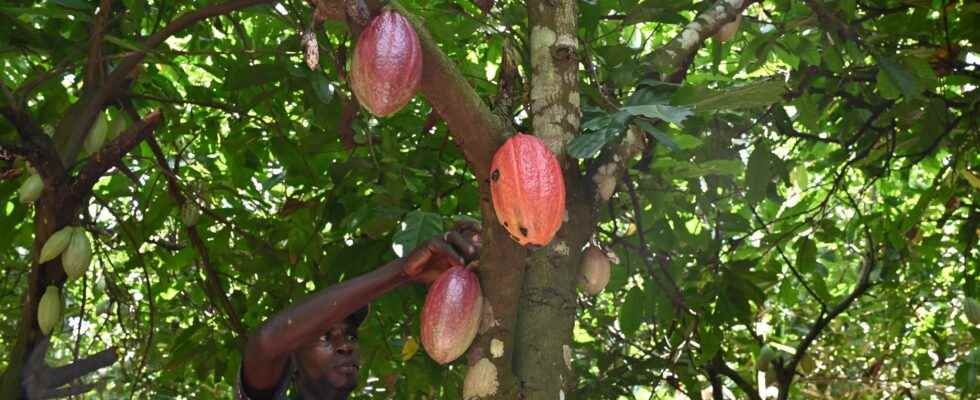This is a measure announced with great fanfare on December 6th. The European Union has just adopted a regulation prohibiting imported deforestation. We will have to prove, using geolocation tools, that a product offered for sale on our markets does not contribute to the erosion of biodiversity in the world. Combined with the carbon border tax, the EU places the climate at the heart of its trade strategy. The ambition is twofold: to become a leader in the fight for the viability of the planet and consistent with the standards that govern production on its soil.
Cocoa, of course, is at the heart of these debates. Like soy, rubber or coffee, this agricultural crop is affected by this anti-deforestation measure. Not without reason. The doubling of the world’s surfaces in fifty years has been achieved in particular by clearing the forest. These cocoa trees are now spread over 11 million hectares, located mainly in very few countries. An ecologically unsustainable development, but one of the drivers of which was to be able to hope for income in the face of a sharp increase in demand for cocoa on the planet. A tragic illustration of insufficiently strong sustainability in its three social, economic and environmental dimensions.
A concentrated offer
On the supply side, Côte d’Ivoire alone produces 40% of the world’s cocoa bean production. It is followed by Ghana (20%), Ecuador, Cameroon and Nigeria (5 to 7% each), Brazil and Indonesia (3% each). Three quarters of the 5 million tonnes harvested each year therefore come from Africa. Production there has tripled since the 1980s. Poverty and land scarcity have pushed many farmers to bet exclusively on this crop and expand it into forests or protected areas. About 50 million people in the world live from cocoa farming, but only 5 million are farmers and producers. Only 10% of them have income conducive to their business and their development. Half of Ivorian cocoa farmers are poor, with women representing the overwhelming majority. Children still often have to help parents harvest these coveted beans abroad.
On the demand side, chocolate consumption is exploding. The EU is the leading importer of cocoa beans, with 60% of the total volume traded. The Netherlands polarizes a quarter of global flows, followed by Germany, Belgium and Switzerland. These volumes are transformed and chocolates made in Europe then find their way to markets located in the four corners of the planet. The United States, with an annual average of 9 kilos per inhabitant, three times more than in the EU, are the main buyers. Asia is beginning to take a liking to it, especially India, unlike China where it is still in its infancy. In the Middle East, consumption is increasing in wealthy circles. The chocolate economy has intensified since the end of the 20th century, between general demographic growth and the rise of the middle classes on all continents. In 2021, the French engulfed 350 million kilos, the business alone representing 3.5 billion euros.
Cocoa is emblematic of an agriculture facing the challenges of ecosystem sustainability. With climate change, crop sustainability is not guaranteed. Cocoa powerfully underlines the importance of agroforestry. It is also a production illustrating the violence and social distress existing in agriculture. Hence the need for total traceability and greater economic justice in this sector. The major players in its business, such as Cargill and Barry-Callebaut, are committed to it and are expected. Multinationals like Mars have just announced that 100% of cocoa from chocolate factories in the EU from 2023 will be responsible. It is necessary to make massive progress in these systems but to consider all their facets. The platform for sustainable cocoa in France certainly campaigns for zero deforestation, but also the fight against child labor and the improvement of producers’ incomes.
Here we are: how to stop cutting down trees without cutting food for millions of farmers. In Europe, let’s not get the debate wrong: we must work for the climate but also for human security. The subject is not to stop eating chocolate to save the planet, but to have a reasonable consumption that tomorrow will make life much better for those who bring us this pleasure product. But without producers, and without the right price for them, no more chocolate. So let’s fight both against deforestation and against poverty, not one or the other.
